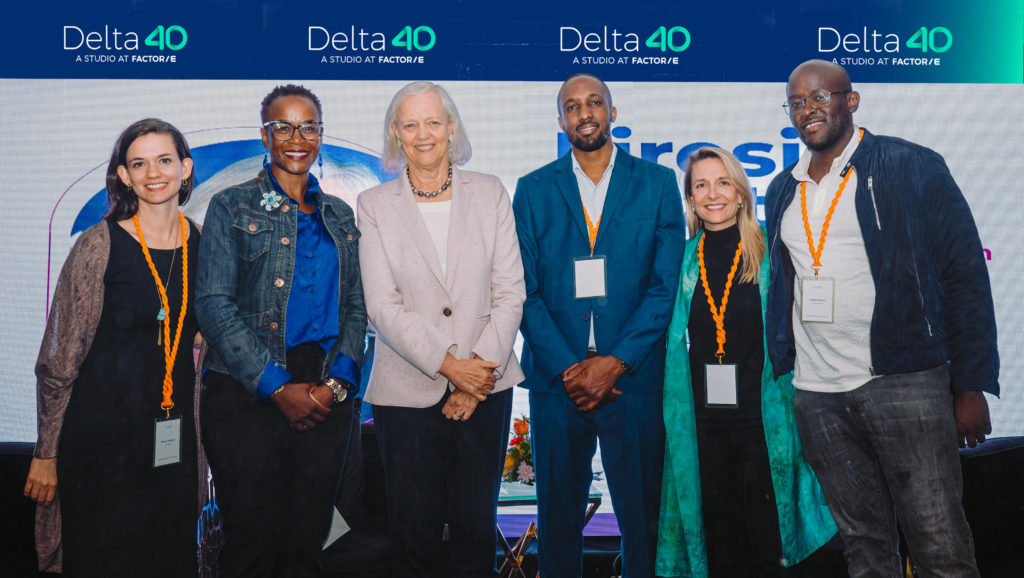AltSchool’s $3 million crowdfunding campaign, has raised concerns about the legality of such alternative funding avenues.
We reported last week that AltSchool Africa, the US-based ed-tech startup was offering equity to members of its “community” for as low as $500. In the LinkedIn post, which featured a 4-minute video, Adewale Yusuf, CEO of AltSchool Africa, said his firm had partnered with Fast Forward, a US-based venture studio and Hoaq, an angel syndicate to allow AltSchool students and community, to invest in the company.
According to Yusuf, the company decided to open up part of the round to “communities”—including AltSchool Africa students. But the decision to let students and an undefined community invest in the Delaware-registered company raises the question of whether AltSchool Africa is in violation of United States Securities and Exchange Commission (SEC) rules. But AltSchool Africa’s chief, says the move to raise capital from its community is perfectly legal. “It’s a valid option globally”, he told TechCabal.
Per rule 506 of the US SEC’s Regulation D, private companies cannot solicit funding publicly. “Under Rule 506(b), a “safe harbour” under Section 4(a)(2) of the Securities Act, a company can be assured it is within the Section 4(a)(2) exemption by satisfying certain requirements, including the following: The company cannot use general solicitation or advertising to market the securities. The company may sell its securities to an unlimited number of ’accredited investors’ and up to 35 other purchasers,” the rule reads in part.
On his part, Yusuf says raising money is not the primary goal for the crowdfund, “We did not do this to raise, but to get our community to be part of it,” Yusuf told TechCabal via text echoing what he also said in the video message posted on LinkedIn. “We’re a community-oriented organisation, and we always keep it that way. We want our students and supporters to own a fraction of us,” he said in the video. But despite Yusuf’s claim, the ultimate beneficiary of any investments is AltSchool Africa.
Startups in Africa and globally, are struggling to raise money from investors as investing outfits pull back on writing cheques to tech companies. In Africa, the result has been a decline in how much funding tech firms disclosed in the first three months of 2023. In April for example, less than $130 million was disclosed by tech startups, representing a 350% decline when compared to April 2022, data from Africa, The Big Deal shows.
While Yusuf describes his latest fundraising as giving their community the opportunity to own part of the company, that AltSchool Africa is adopting a crowdfund to raise all or part of $3 million, is only part of a trend where founders use alternative capital raising structures in an attempt to find cash to run their businesses. But the rules about crowdfunding are complicated. In May 2022, the US Financial Industry Regulatory Authority (FINRA) fined Wefunder and StartEngine Capital $1.4 million and $350,000 respectively, in part for, “ improperly sent emails to hundreds of thousands of investors recommending and soliciting investments being offered on its portal in violation of a rule that prohibits such solicitations; included misleading communications on its funding portal website.”
Generally speaking, companies that engage in general solicitation or advertising to promote their securities offering can sell securities only to investors who are accredited. But to qualify as an accredited investor, an individual must meet certain income or net worth thresholds (have a net worth of over $1 million or an income of more than $200,000), or have certain professional certifications, designations, or other credentials. But there is an exception to the SEC’s rule 506(c).
In 2012, former US President, Barack Obama signed the Jumpstart Our Business Startups Act (JOBS Act) into law. The new law created Regulation CF and Regulation A+ as two exemptions to the SEC’s restrictions on private companies soliciting investment from the public. Because of these amendments, for example, startups that opt to offer their shares under Regulation CF instead of a traditional 506(c) offering may raise up to $5 million from non-accredited investors.
Regulation crowdfunding is also subject to conditions. For example, while general solicitation is permitted upon filing a Form C with the SEC, there are rules which guide how the offering is advertised, according to Bill Clark, CEO and founder of MicroVentures, a US venture capital firm. For example, issuers are not allowed to advertise the terms of the offering, including the nature and price of the securities. Some information about AltSchool Africa’s deal terms is publicly available on the Hoaq link in Yusuf’s post.
AltSchool Africa doesn’t specify who should not invest or the criterion it will apply to decide who it takes money from or under what rule it is running this crowdfunding campaign. The post calling for investors simply invites them to either complete a form on Sydecar, a deal execution platform. Or commit to investing $500 or multiples of $500 through this form, managed by Hoaq, an African angel investor community.
TechCabal is unable to independently establish if additional checks are imposed on would-be investors who indicate their willingness to invest. As such the question about the legal standing of AltSchool Africa’s latest attempt at fundraising is still up in the air.
Editors note:
Comments attributed in error have been removed.



















